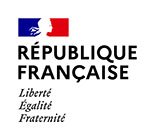Search
You are here
Constructing diasporic identities in the everyday life: material cultures, practices and homeland memories in western Phoenician communities
Conference
Published on
05 June 2015
Updated on
12 June 2018
Colloquia
The archaeology of Migrations
International colloquium organized by Inrap, in partnership with the National Museum of Immigration History.
November 12 and 13, 2015 at the National Museum of Immigration History.
Archaeology of migrations
by Ana Delgado, Universitat Pompeu Fabra Barcelona
Migration was a common phenomenon in the Mediterranean World at the beginning of the first millennium B.C. The mobility and dispersal of groups of Levant and Aegean origin that occurred in the period between the ninth and the seventh centuries B.C. have been approached through the concepts of colonization and colonialism. The causes of these movements and their role in the transformation of the Mediterranean communities and environments in which these migrants settled and built distinctive communal identities have been the main interest in the analysis of these migrations. Little attention has been put in the migration processes themselves, to the migrants that made them and to the diversity of communities and interactions that they built in the Western hostlands.
In this communication I specifically explore the migration of Levantine origin groups and the creation of Phoenician communities in the Western Mediterranean, particularly in south Iberia. Through the concept of diaspora, I analyze the social, age and gender diversity of these migrants and their descendants, as well as the identity construction, and the interaction and hybridation between migrants and local people. I place the focus in their everyday experiences and in the (re)creation of memories of homeland through their material cultures and daily practices.
In this communication I specifically explore the migration of Levantine origin groups and the creation of Phoenician communities in the Western Mediterranean, particularly in south Iberia. Through the concept of diaspora, I analyze the social, age and gender diversity of these migrants and their descendants, as well as the identity construction, and the interaction and hybridation between migrants and local people. I place the focus in their everyday experiences and in the (re)creation of memories of homeland through their material cultures and daily practices.
Ana Delgado Hervás holds a B.A. in Philosophy and Humanities (history section) from the Universitat Autònoma de Barcelona and a Ph.D. in History from the Jaume Vicens i Vives University Institute of History / UPF (2001-02). She is currently senior lecturer in Prehistory at the UPF Department of Humanities and a member of the Jaume Vicens i Vives University Institute of History. She has been a lecturer of the Master's in Archaeology and History of the Mediterranean at the Università degli Studi di Sassari and vice dean of the UPF Faculty of Humanities.
She specialises in archaeology of the Mediterranean. Her research focusses on diaspora and colonies in ancient times, as well as on the links between groups and communities in the western Mediterranean in the 1 st millennium B.C. from a social and gender-based standpoint. Colonialism, everyday life and connectivity constitute her key lines of research.
She has been involved with several projects for excavation, study and dissemination of archaeological sites, essentially at Phoenician colonial settlements. She was co-director for excavations at the Cerro del Villar in Malaga, one of the main Phoenician settlements in the southern Iberian Peninsula. She currently directs the project Interaction, identity and material culture. A comparative study of three colonial areas: Bahía de Málaga, Empúries-Ullastret and Oristano-Nuraghe S'Uraki (6th-4th B.C.), funded by the Ministry of Economy and Competitiveness.
Bibliography
She specialises in archaeology of the Mediterranean. Her research focusses on diaspora and colonies in ancient times, as well as on the links between groups and communities in the western Mediterranean in the 1 st millennium B.C. from a social and gender-based standpoint. Colonialism, everyday life and connectivity constitute her key lines of research.
She has been involved with several projects for excavation, study and dissemination of archaeological sites, essentially at Phoenician colonial settlements. She was co-director for excavations at the Cerro del Villar in Malaga, one of the main Phoenician settlements in the southern Iberian Peninsula. She currently directs the project Interaction, identity and material culture. A comparative study of three colonial areas: Bahía de Málaga, Empúries-Ullastret and Oristano-Nuraghe S'Uraki (6th-4th B.C.), funded by the Ministry of Economy and Competitiveness.
Bibliography
- « Life and death in ancient colonies : domesticity, material culture and sexual politics in the Western Phoenician world, 8th - 6th B.C » (Vie et mort dans les colonies antiques : domesticité, culture matérielle et politique de la sexualité dans le monde phénicien occidental, VIIIe-VIe s. av. J.-C.), dans l'ouvrage de B. Voss et E. Casella : The Archaeology of Colonialism: Intimate Encounters and Sexual Effects (Archéologie du colonialisme : rencontres intimes et effets sexuels), Cambridge University Press, 2011
- « Representing communities in heterogeneous worlds : poor foods and ritual practices in Phoenician diaspora (Représentation des communautés dans des mondes hétérogènes : aliments frugaux et pratiques rituelles parmi la diaspora phénicienne), dans l'ouvrage de G. Aranda et al. (eds.) : Guess Who's Coming To Dinner : Feasting Rituals in the Prehistoric Societies of Europe and the Near East (Devine qui vient dîner : Festins rituels dans les sociétés préhistoriques de l'Europe et du Proche-Orient), Oxbow, 2011
- « Households, merchants and feasting : socio-economic dynamics and commoners' agency in the emergence of the Tartessian world (11th-8th centuries B.C.) » (Maisonnées, marchands et festins : Dynamique socio-économique et "commoners' agency" dans l'émergence du monde tartessien [XIe-VIIIe s. av. J.-C.]), dans l'ouvrage de M. Cruz Berrocal et al. (eds.) : The Prehistory of Iberia : Debating Early Social Stratification and the State (Préhistoire de la péninsule Ibérique : Débat sur la stratification sociale ancienne et l'État), Routledge, 2012.
Transition

